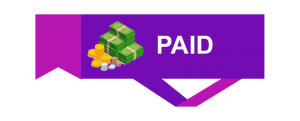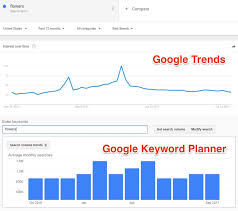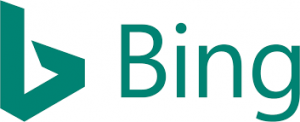CHAPTER 10
Tracking & Measuring Success
How important is SEO Analytics?
It is said that if SEO analytics be measured, then it can be improved. Measurement is important for achieving success in search engine optimization. To examine their SEO methods and make better plans for success, professional SEOs check data about links, referrals and rankings.
RECOMMENDED METRICS TO TRACK SEO
The list below can be generalized even if each business has its peculiarities and each website makes use of distinct measures that are necessary. Only measures significant to SEO analytics are covered here and general measures are not embedded. To see more about web analytics, view Choosing Web Analytics Key Performance Indicators by Avinash Kaushik.
1. Search Engine Share of Referring Visits
Check what each source of traffic has contributed to your site every month, including :
- Direct Navigation: This refers to typed in traffic, bookmarks, email links without tracking codes, etc.
- Referral Traffic: This is acquired from links across the web or in trackable email, promotional, and branding campaign links
- Search Traffic: This refers to queries that sent traffic from any major or minor web search engine
Having a knowledge of the specific number and percentage helps to recognize loopholes and also serves as a source of comparison as time goes on. For instance, if you experience increased traffic but the links have little value, it’s not yet time to celebrate. But if the traffic from search engines reduces drastically, it could be serious. This data should be employed in examining your marketing attempts and in deciding how to acquire traffic.
2. Search Engine Referrals
There are three main engines that contribute 95%+ of all the search traffic in the US. They are Google and the combination of Yahoo! and Bing. For other countries apart from the US, 80%+ of the search traffic is credited to Google alone (with only the exception of Russia and China). Evaluating what each search engine adds to your search engine is important for many reasons:
Compare Performance vs. Market Share
Compare the volume contribution of each engine with its estimated market share.
Get Visibility Into Potential Drops
In the event of a notable drop in your search engine traffic, having a knowledge of the approximate and precise contributions from each engine will help you understand the problem. If all the search engines reduce equally in traffic, the issue is most probably, accessibility. It’s possible that you’ve been flagged if Google alone drops while the rest remain.
Uncover Strategic Value
Some of your work in SEO will be more profitable than others. For instance, we have found out that using on-page optimization strategies like including keywords more appropriately, are more beneficial with Yahoo! and Bing than they are with Google. Conversely, acquiring anchor text links from many domains works better with Google than other search engines. It is therefore, important for you to identify the strategies that are more beneficial with each search engine. This would help you direct your energy to the right endeavors.
3. Visits Referred by Specific Search Engine Terms and Phrases
Another necessary subject of SEO analytics is the keywords that send traffic. It is advisable for you to keep track of these regularly to recognize latest trends in keyword demand, examine your efficiency on key terms, and identify terms currently encouraging traffic that your site is not fully optimized for.
Other terms apart from the top terms and phrases are equally important. You should keep track of terms that are important to your business. If the lines are facing the wrong direction, you can identify the need for course correction. In the past 15 years, search traffic has continually increased. Therefore, a reduction in the number of referrals is disturbing. Watch out for seasonality issues (keywords that are only in demand certain times of the week/month/year) and rankings (have you dropped, or has search volume reduced?).
4. Conversion Rate by Search Query Term/Phrase
Conversion is a very important measure when the bottom line of your organization is concerned. For instance, in the graphic on the right side, 5.80% among the visitors who accessed Moz with the query ‘SEO tools’ became members during the visit. This conversion rate is higher than the numerous keywords that lead users into our site. This information can be used in two ways:
- Examining our rankings, we discover that we only rank #4 for “SEO Tools.” Making efforts to improve this position will without doubt cause more conversion.
- Because our analytics will also tell us what page these visitors landed on, we can focus our efforts on improving the experience of visitors on that page.
The actual benefit of this tracking is not far fetched: identifying keywords that bring in visitors that convert to paying customers and paying more attention to rankings and advancing the landing pages visitor can access. Using referrals from keyword phrase is necessary but it does not explain everything. A more intensive examination will help you find more useful data concerning how conversion commences and is terminated on your site.
5. Number of pages receiving at least one visit from search engines
It is important to know the number of pages that enjoy engine traffic, it is an important tool for tracking the overall performance of SEO. This number gives us an insight into indexation i.e the total number of pages on a website that search engines have in their indexes. For large websites (50,000+ pages), inclusion alone is important for getting traffic, this measure provides a figure that could imply failure or success. The trend line should increase when you direct your efforts to issues concerning site architecture, acquisition of links, XML sitemaps, and uniqueness of content and meta data. This reflects that more pages are being added to the results of search engines. Search traffic remains the best measure.
There are other important SEO analytics data points. However, the ones mentioned above should be generally applied to get the best results from your SEO campaigns.
Google’s (not provided) Keywords
Google made it known in 2011 that it would not allow keyword query data using it’s referrer string for logged-in users anymore. The implication is that in the place of making keyword data available in Google Analytics, users would discover on query of the keyword that it is ‘not provided’. This was anticipated to influence lower than 10% of all the search queries. However, webmasters soon stated that up to 20% of their search queries were from keywords (not provided).
In the couple of years after that, higher volumes of ‘not provided’ keywords were being reported as encrypted search was used in a higher number of search (i.e., the https:// version of Google). With the initiation of Google+, more logged-in users made this number even higher. Over the years, smart SEOs have identified methods to contend with the (not provided) situation, and tips on reclaiming your data.
Analytics Software
The right tools for the job

- Fireclick
- Coremetrics
Additional Reading:
- How to Choose a Web Analytics Tool: A Radical Alternativefrom Avinash Kaushik way back in 2006 (but still a relevant and quality piece)

- Yahoo! Web Analytics(formerly Indextools)
- Clicky Web Analytics
Regardless of the analytics software you choose, it is better to examine various forms of pages on your website, using the results to make improvements on conversion rates. The process of evaluating pages on your site could be a simple process of testing two versions of a page header with a free tool and it could be a complex process of hundreds of variants of a single webpage with an costly multivariate software.
Metrics for Measuring
Search Engine Optimization
It’s quite hard to optimize for certain behaviours of search engines due to the fact that their algorithms are not exposed. However, using various strategies simultaneously has been useful and there are always new data that can give insight into the factors that affect ranking and the instability in ranking signals. It is possible to use the engines to have a cutting edge over other sites by constructing intelligent queries and also using the data produced by the search engines. The new body of knowledge from this strategies can be used together with SEO education and quality analytics software to make plans on how to optimize your site.
Google Site Query
Restrict your search to a specific site (e.g., site:moz.com). It is of great use to view the number and list of pages indexed on a particular domain. It is possible for you to increase the value by adding additional query parameters. For instance, site:moz.com/blog inurl:tools, will show only those pages in Google’s index that are in the blog and have the word “tools” in the URL. This number will be unstable, but it’s a good rough measurement.
Google Trends
At google.com/trends, you can engage in the research of keyword search volume and popularity over time. Log in to your Google account to access richer data, including specific numbers instead of simple trend lines.
Bing Site Query
Restrict your query to a specific site (e.g., site:moz.com). Bing, like Google makes it possible for queries to reflect the number and the outline of pages present in their index from a particular website. You should know that Bing’s enumeration could fluctuate considerably. As a result of this, you may not find the data as useful as you should.
Bing IP Query
Restrict your query to a specific IP address (e.g., ip:216.176.191.233). This query will show pages that Microsoft’s engine has found on the given IP address. This can be used in identifying whether a shared provider hosts a particular page or in locating websites hosted by the same IP.
Bing Ads Intelligence
Bing Ads Intelligence contains different keyword research and audience intelligence tools. It is mainly for search and display advertising. The value of each tool will not be extensively explained in this guide but it isn’t a waste of time to examine them. A lot of them can be used in SEO.
Blog Search Link Query
Search links in a blog (e.g., link:https://moz.com/blog). Google’s regular link query operator is not instrumental at all time,. However, their blog search produces results of high quality that could be sorted by date range and relevance.
APPLYING THAT DATA
A knowledge of the numbers alone does not make a difference. The usefulness lies in the ability to interpret and make use of the changes in course-correct. There are samples of a number of the directional signals accessed frequently by evaluating data points below and we provided ideas on maximizing them.
Fluctuation
In search engine page and link count numbers
The figures shown in “site:” and “link:” queries are scarcely exact. Therefore, we advise you not to be very worried about huge fluctuations except traffic drops follow. For instance, Yahoo! reports between 800,000 and 2,000,000 links to the moz.com domain. It is obvious that we don’t experience the loss or gain of hundreds of thousands of links each day, so this variability does not offer a lot of guidance about our real link increase or reduction.
In the event that links or pages indexed corresponds with traffic referral drops from the search engines, you are probably experiencing a real loss of link juice (check to ascertain if important links that were formerly bringing traffic/rankings boosts still exist) or a loss of indexation due to penalties, hacking, or malware. Carrying out a detailed analysis using your own web SEO analytics and Google’s Search Console can assist you in identifying possible issues.
Falling
Search traffic from a single engine

Pinpoint the problem that is most possibly culpable and investigate. Visit forums like Cre8asite, HighRankings, and Google’s Groups for Webmasters for help.
- If you’re presently facing a penalty at that engine for violating search quality or terms of service guidelines. Have a look at this post on how to identify and handle a search engine penalty.
- In case you’ve unintentionally prevented access to that search engine’s crawler, double-check your robots.txt file and meta robots tags and review the Webmaster Tools for that engine to confirm if any issues exist.
- If a particular engine has changed their ranking algorithm and the new method does not work well with your website, it is most likely because the links to your site have undergone depreciation. This is common with sites that used manual link building campaigns of links with low or moderate quality.
Falling
Search traffic from multiple engines
It is possible that you have made efforts to stop crawlers or indexation on your website. There might be an issue with the robots.txt or meta robots tags, a difficulty with hosting/uptime, a DNS resolution issue, or a number of other technical breakdowns. Discuss with your system administrator, developers, or hosting provider, and take care to examine your Webmaster Tools accounts and analytics to aid in identifying potential causes.
Individual
Ranking fluctuations
A great number of pages experience the mixture of attaining and losing ranks for some keyword terms repeatedly within a day. This should not rouse concerns. Ranking algorithms changes, competitors gain and lose links (and on-page optimization tactics), and search engines also change indexes (and could commit blunders in the processes of ranking, crawling or inclusion). When significant reduction in ranking is experienced, check on-page elements for any signs of over-optimization or non-adherence to guidelines (cloaking, keyword stuffing, etc.) and check whether links have recently been gained or lost. It should be noted that with unexpected increase in rankings for fresh contents, brief period of increased visibility succeeded by a drastic drop is not strange in the SEO field. In fact, it is known as ‘the freshness boost’.
“You shouldn’t be flustered by little changes. When the drop is large, don’t jump into conclusions, wait for some days to pass. If your website is new or you are trying to get links and active marketing, the frequent changes are usual. It’s advisable for you to get ready for such fluctuations and continue working. ‘
Positive
Increases in link metrics without rankings increases
A lot of site owners make the assumption that after they have achieved a model SEO-on-page optimization, link acquisition, etc, they should start getting results. Unfortunately, this is not true. Ranking improvement requires time, especially for new sites, pages and contents with serious competition. Having many links does not immediately guarantee top ranking. This is because search engines have to examine and index the pages where your links came from. Therefore, you may be surprised that the ranking you want might not be commensurate with your advancement, it could be days or weeks behind your progress.














